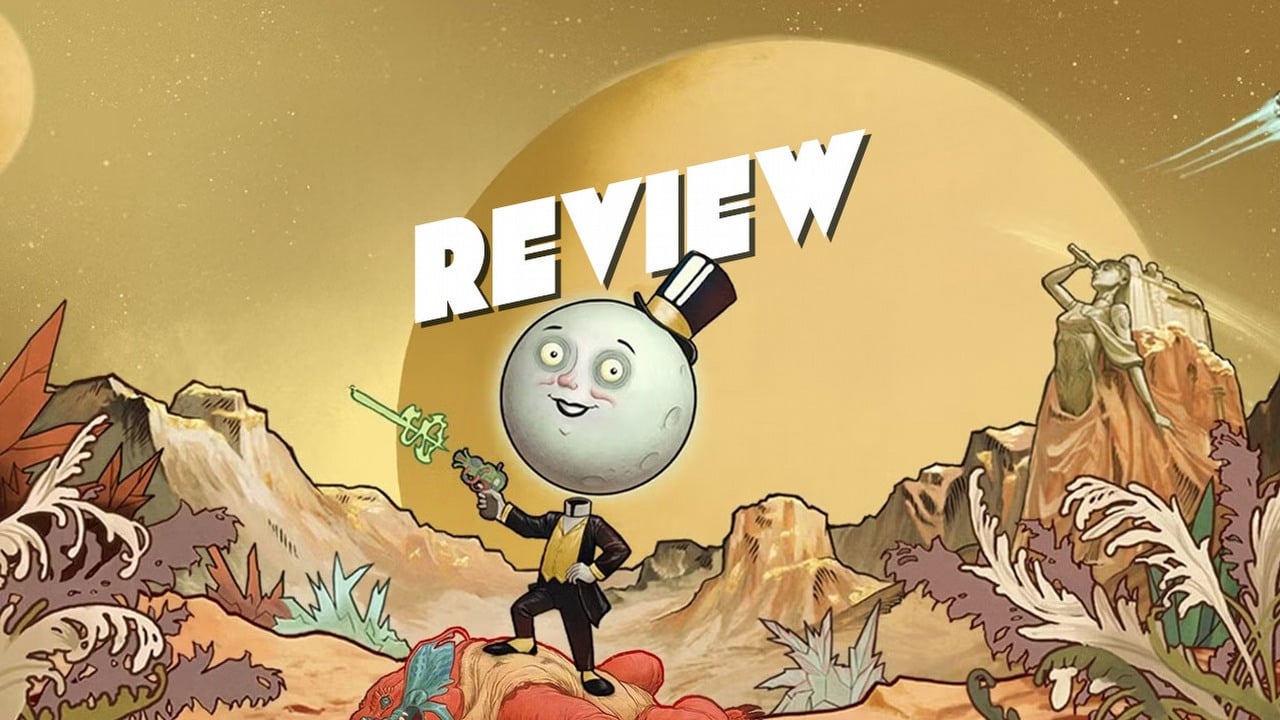
When I play large, story-driven Western RPGs, I usually end up playing characters in a similar way. I tend to avoid being deliberately rude or aggressive because the games often punish that behavior – it can lead to fights or close off story paths. So, I typically play a character who is kind to those who are kind to them, and only acts harshly when provoked. This probably stems from my own desire to be a good person, and the games themselves often reward that kind of behavior, encouraging me to continue playing that way.
Playing The Outer Worlds 2 felt like a fresh start, allowing me to truly become my character, rather than just a skilled version of myself. The game’s Flaws system is the real star here – it was the most enjoyable part of the entire experience. When you create your character, you can choose two positive traits, but you also have to select a flaw to balance things out. As you play, you can even unlock more flaws based on your choices. While these flaws are optional, I highly recommend embracing them for a more engaging playthrough, unless you have a specific goal in mind.
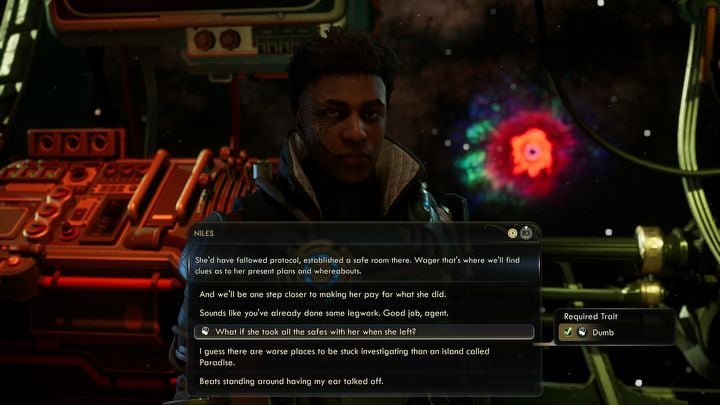
I intentionally created a character who often says silly things. The game sometimes offers a deliberately “dumb” response option specifically for this character, and I could have chosen to avoid it. However, I usually went with it, and I was surprised by how well it worked! I didn’t face negative consequences, and often, acting naive or straightforward actually helped me achieve my goals. It’s interesting because most of the characters in the game seem willing to overlook a bit of silliness to keep the conversation going, which makes them feel more realistic. Plus, most NPCs don’t want conflict, so they often let it slide, perhaps seeing it as harmless or beneath them.
I believe The Outer Worlds 2 is the best open-world RPG I’ve experienced, allowing players to truly take chances and create complex, even flawed, characters. Though not without its issues, Obsidian Entertainment’s latest RPG offers lessons for the future of the genre.
Perfectly Flawed, As All Things Should Be
This game makes even the dialogue sections – usually a boring part of action games – enjoyable with interesting choices. The voice acting is great, and the writing is actually hilarious. I was really impressed, especially after seeing the funny Outer Worlds 2 ads featuring Ben Schwartz, and I’m happy to say the game delivers on that comedic promise.
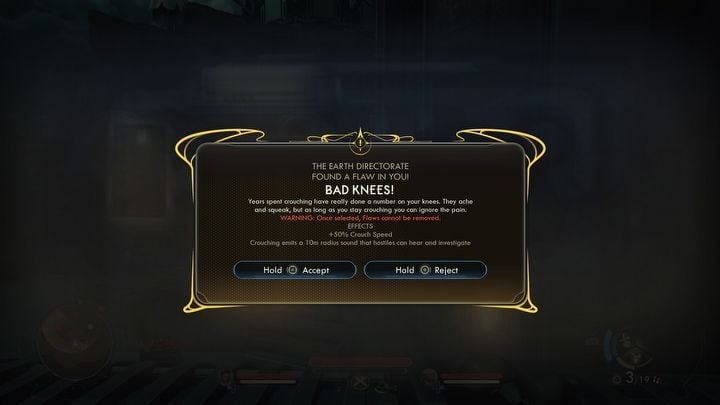
The game The Outer Worlds explores some serious themes, portraying a society where people are either oppressed by powerful corporations or religious groups, or are actively contributing to that oppression. However, it manages to do so with a strong sense of parody. I often found myself laughing at the strange and illogical beliefs expressed by the characters I encountered. For example, followers of Auntie Choice constantly talk about climbing the corporate ladder and judge each other based on their status, while the Protectorate is paralyzed by fear of punishment. It’s as if everyone needs to take a break and realize how absurd everything is. Thankfully, this satirical tone enhances the roleplaying experience.
I never really felt drawn to any one side in the game, and while some players might not like that, I found it freeing. It let me play as a true independent, taking jobs from whoever offered them, but always with a bit of self-interest. The game definitely throws some tough decisions your way. Even though I didn’t pick a faction, I did connect with certain characters. With so many terrible groups fighting for control, the game seemed to be suggesting they’re all pretty much the same, and what truly matters is the people around you. I focused on making choices based on what I thought was right, rather than following orders from above. In The Outer Worlds 2, my loyalty belonged only to those I considered friends.
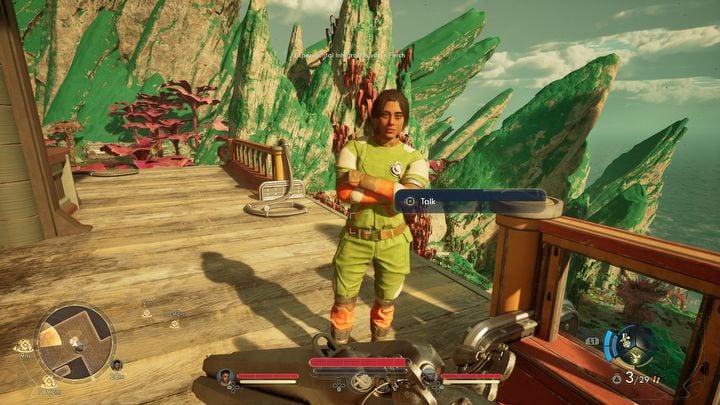
Let’s talk about the companions you can team up with. I don’t want to reveal who they are just yet, because discovering them is part of the fun – I was surprised by one in particular! Their personal stories and what they say during conversations are definitely a strong point of the game. However, I often found myself forgetting to use them effectively in battles. I mainly kept them around to experience their individual quests and see their reactions to things. Overall, the companions are a solid part of the game, but they didn’t particularly impress me.
- Flaws system greatly enhances roleplaying;
- dialogue is genuinely funny and well-written, with important choices;
- allows for creativity in approaching missions and combat;
- high variance in experience for great replayability.
CONS:
- Certain combat encounters can be frustrating, especially boss fights;
- story and action are serviceable, but not always the most memorable.
The Highs and Lows of Combat
During my time playing The Outer Worlds 2, a few combat encounters really stood out. I specifically remember sneaking through an enemy hideout filled with tough opponents, and then finding myself with very little ammo. Despite that, I managed to win by carefully placing mines and throwing grenades through an air vent. The fight lasted about half an hour, but the feeling of finally defeating the last enemy was incredibly satisfying.
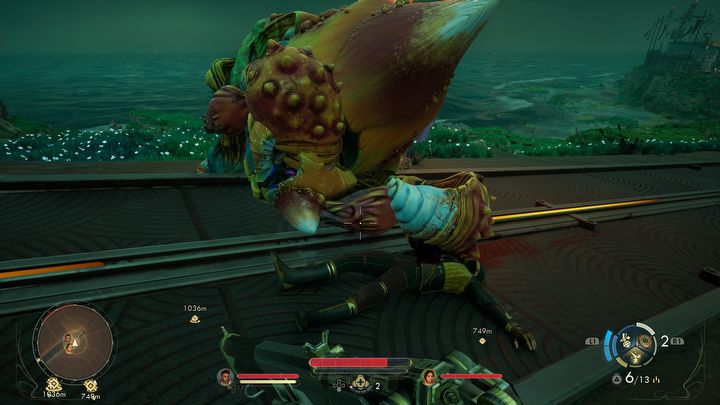
However, some of the boss battles felt too cramped and chaotic because of the number of enemies surrounding you. I spent over an hour retrying one fight in a cave. When you only have a gun or grenade and are swarmed by enemies in a small space, it can be really overwhelming and frustrating.
Combat in The Outer Worlds 2 improves as you play. It takes a little while to find the best weapons and upgrades, and to fully understand how customizable they are, but it really starts to feel good around the middle of the first area. While enjoyable at times, the combat wasn’t the most memorable part of the game for me – I’ll remember it more for its conversations and characters.
The Story Serves Its Purpose
Beyond the gameplay, The Outer Worlds 2 boasts a compelling story. While Xbox and Obsidian have asked me to avoid revealing too much, I’ll say it’s a game best enjoyed knowing as little as possible beforehand. You take on the role of a commander leading a task force for the Earth Directorate. The beginning of the game establishes that you’ve been sent to a distant galaxy on a mission against a competing group. You quickly become caught up in a pursuit of the main villain, who is causing chaos across various planets. You’re driven to find answers, potentially seek retribution, and maybe even rediscover what you were originally fighting for.
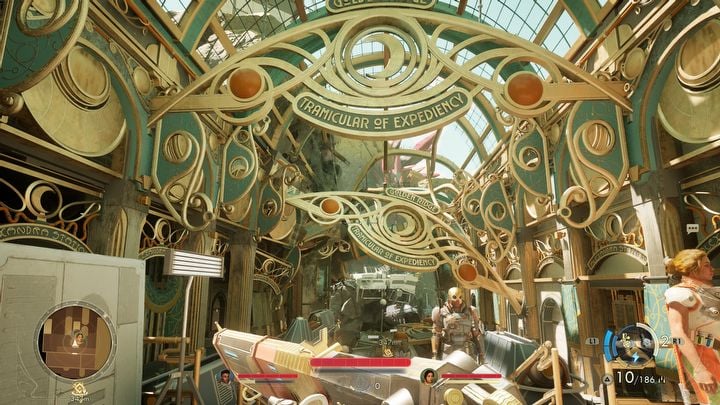
The story fits the game perfectly, giving you good reasons to complete each mission and offering choices that actually matter. During important conversations, the game will tell you that something “will be remembered,” though it doesn’t say if that’s a positive or negative thing. For example, early in the game, you’ll have to pick a side between two influential people, but you can also choose to work with neither. Later on, you’ll face tough decisions that have a real and noticeable effect on the game world, but I won’t spoil any more details.
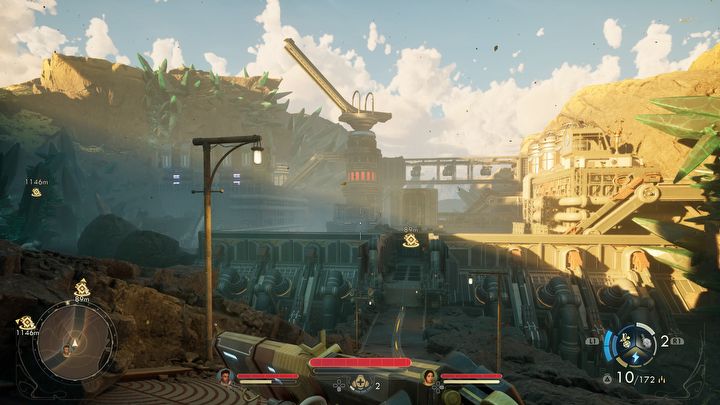
During the review period, I focused on completing the main story before the Early Access release, but the interesting side quests were hard to resist. The worlds are full of things to discover, and the characters you meet are often memorable. While everything works well, the combat isn’t as impressive as the roleplaying and conversation choices.
Final Thoughts
The Outer Worlds 2 is a fantastic role-playing game. What truly sets it apart is how much it lets you become your character – a level of role-playing depth you don’t often find in other RPGs. If other game developers could learn one thing from it, it should be this: create protagonists with interesting flaws, integrate those flaws into the gameplay, and make every type of character fun to play. However, replicating this is incredibly difficult. Obsidian’s writing team is exceptional, and no other studio will have the same talent, so achieving this level of character depth might be unrealistic for other games.
What really makes The Outer Worlds 2 shine is its roleplaying, though other aspects aren’t quite as strong. The story and combat are decent, but sometimes felt a little frustrating and didn’t really stand out. Despite that, I enjoyed playing it a lot and would happily play again – especially to see how different character builds and choices affect the outcome. Maybe with a new approach, I can have an even better experience this time around.
Read More
- All Golden Ball Locations in Yakuza Kiwami 3 & Dark Ties
- These are the 25 best PlayStation 5 games
- The MCU’s Mandarin Twist, Explained
- Movie Games responds to DDS creator’s claims with $1.2M fine, saying they aren’t valid
- Gold Rate Forecast
- A Knight Of The Seven Kingdoms Season 1 Finale Song: ‘Sixteen Tons’ Explained
- Mario Tennis Fever Review: Game, Set, Match
- Hollywood is using “bounty hunters” to track AI companies misusing IP
- Scream 7 Will Officially Bring Back 5 Major Actors from the First Movie
- What time is the Single’s Inferno Season 5 reunion on Netflix?
2025-10-23 16:04